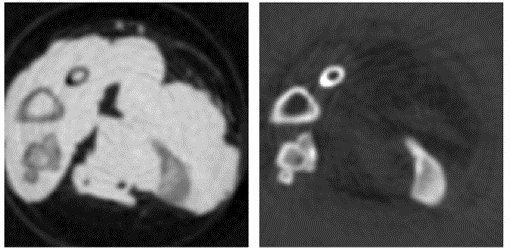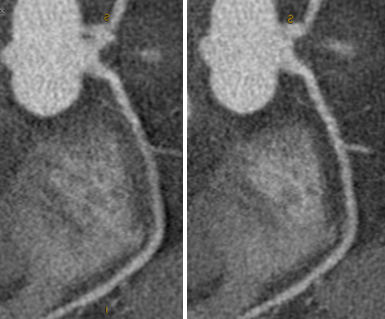Research
Current Projects

CT Radiation Dose
Our laboratory has performed numerous projects in quantifying and reducing CT radiation dose. We have investigated CT tube current modulation methods and imporved automated exposure techniques to improve the tradeoff between readiation dose and image quality. As part of an NIH-funded U01 project, we are developing and validating a software tool to provide routine and accurate personalized CT radiation dose estimates. You can learn more about this project here . This project is a collaboration between Marquette University, Varian Medical Systems, Medical College of Wisconsin, and Childrens Hospital of Wisconsin. Our CT radiation dose research has been supported by the NIH, FDA, GE Healthcare, and the Marion and Alvin Birnschein Foundation.
Spectral CT
Photon-counting detectors are being developed with the ability to sort incoming x-ray photons based on energy. This energy information enables improved material decomposition and overall image quality. Our laboratory developed a bench-top prototype spectral CT system capable of sorting photons into multiple energy bins. We are using the prototype system to develop reconstruction, calibration, and artifact correction methods for spectral CT and to study new applications of the technology. We have been collaborating with the University of Chicago on an exciting 'One-Step' material decomposition and reconstruction method. Our research in spectral CT has been funded by multiple NIH grants.


CT Angiography
Our laboratory is developing image processing and acquisition methods to improve the visualization of blood vessels in CT Angiography images. One recent project developed an algorithm to automatically determine the lowest-motion phase for coronary artery CT reconstruction based on image quality metrics. This algorithm was translated into product and was released by GE Healthcare in 2016 as the 'SmartPhase' feature on the Revolution CT system. Our newest project is investigating advanced bolus tracking techniques to improve the timing of peripheral run off scans. These projects have been funded by the GE Healthcare.